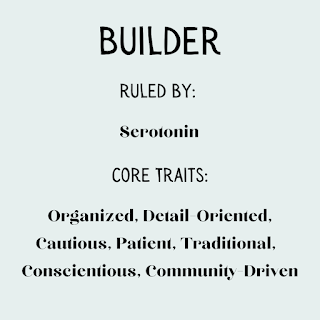The Science of Why We Love Who We Love
Maybe you’ve noticed that you seem to have a particular “type” when it comes to the people you date.
Or perhaps you find yourself inexplicably drawn to a person but have no idea why you feel such an intense chemical attraction.
If you’ve ever been curious about your relationship preferences and patterns, this book is for you.
Helen Fisher is a research professor at Rutgers University who has extensively researched the answers to these questions about the chemistry of love and relationships. Her theories on the biology and chemistry of connection became the basis for the dating sites Chemistry.com and Match.com–the pioneers of the dating apps most commonly used today.
In this book, she breaks down the four ruling brain chemicals that translate into four distinct personality types and the connections between the types that are most likely to find success.
Obviously, these four brain chemicals–testosterone, estrogen, dopamine, and serotonin–are naturally occurring in just about ALL human brains and bodies. However, the argument she makes presents the case that each of us was biologically exposed to one more than the other in the process of our fetal development, and that enhanced exposure is the defining factor of our personality.
Because humans are complex creatures, we also tend to have a secondary personality in addition to the primary personality we were born with, and both personalities combined play a large role in defining who we are.
For example, my primary personality type is Negotiator and my secondary personality type is Explorer, making me a Negotiator/Explorer.
To discover which type you are, you can take Helen Fisher’s official quiz or keep reading for a simplified explanation of the four types presented in her book.
These people tend to be more direct in their speech patterns, and enjoy sparking debates on controversial or deep topics. Small talk is a waste of time and not something they will likely be bothered with.
They are self-fueled go-getters who find the most fulfillment in staying active and being proactive in their lives. You won’t find them sitting around at home twiddling their thumbs on their days off. To them, there’s always something to do, and doing something is always better than doing nothing.
They are the alpha type of personality, the natural leaders, the driven competitors. They prefer logic over emotion and strive to see things from as much of an objective perspective as possible.
This propensity for rationality also makes them excellent at understanding complex systems or designs. They are often great at making music as they understand the structure of music very well. Likewise, they are also amazing engineers, architects, and designers.
Though they are rarely apt to share their emotions or willingly showcase their vulnerabilities, they tend to have explosive tempers. However, they are also the most likely to become heroes in an emergency; the ones who rush into a burning building or jump out of a plane to save another.
Who They’re Looking For:
In love, the Director is looking for someone to be their “mind-mate” or a person to connect with on an intellectual level.
They are also instinctively drawn to people who are deeply emotional as they–whether consciously or not–seek to balance their own lack of emotional expression. Either that or they simply wish to satisfy their need to feel needed, and providing emotional stability is something they are naturals at.
Whatever their motivation, though, a Director seeks an intellectual equal who can keep them challenged and engaged in life.
Best Match: Negotiator
The most natural match for a Director is their opposite: the Negotiator.
This relationship naturally balances these two opposing personalities out. The Director brings more assertiveness and emotional stability to the Negotiator while the Negotiator is able to nudge the Director out of the protective, logical shell they like to put themselves in.
The Director also greatly appreciates the Negotiator’s willingness to launch into debates on serious topics and delve into deep and complex conversations. The Negotiators openness to understanding is greatly appreciated by the objective Director.
While the Director is best at understanding the complex parts of something, the Negotiator is best at seeing the bigger picture of the whole, and together the two can broaden each other’s understanding.
However, their differences can also become a source of conflict.
The Director is likely to become annoyed by the Negotiators intense and constant emotional expression, and can also wind up feeling misunderstood if their Negotiator is unable to understand that just because they don’t express their emotions, doesn’t mean they don’t have them.
If they are able to overcome their differences and truly understand one another, though, they make the best possible match for one another, a match with a foundation of perfect balance.
Negotiator - Estrogen / Oxytocin
Who They Are:
The opposite of the Director, the Negotiator is ruled by the bonding hormones of estrogen and oxytocin.
These people were born to connect, and value their relationships with others above all else.
They are passionate, emotional, expressive, and incredibly empathetic. They not only seek to understand every person they come across, but they usually do quite easily.
Like Directors, they can’t stand small talk and would rather delve into deeper topics, especially those concerning ideas, morals, and emotions.
They are highly imaginative, with extremely vivid imaginations and dreams, hence they also tend to be artists.
While the Director is great at thinking systemically, the Negotiator is great at reading between the lines and making connections between disparate ideas or themes, what Helen Fisher calls “web thinking.”
They are intuitive and introspective, in tune and most at peace with their inner thoughts, emotions, and being.
They are agreeable and altruistic, which also gives them a tendency to neglect their own needs and wants in favor of another—a recipe for resentment. They tend to take criticism too personally as well, and can easily be overcome with despair and shame at the slightest perceived inadequacy in themselves.
However, at their best, they are an embodiment of kindness, creativity, and inner peace.
Who They're Looking For:
In love, they are looking for a “soul mate” or someone with whom they can share their whole selves with in equal measure with their partner. They seek to deeply understand their partner in life, and more than that–to be wholly understood by their partner. They are happiest when they are able to love and be loved in return.
Best Match: Director
Technically, because of the Negotiator’s agreeable and understanding nature, they can get along with just about any of the four types. However, like the Director, Negotiators thrive in relationships that bring them balance.
Negotiators tend to spend a lot of time picking up on the subtle, non-verbal communication from their loved ones, and the Director’s straightforward bluntness is a refreshing respite from all the deeper analyzing. Because the Directors also prefer deeper conversations over the small and meaningless talk, the Negotiators enjoy frequent conversations that spark their inner worlds.
Negotiators also enjoy bouncing ideas off their Director mates who can easily and quickly provide helpful commentary and ideas that fuel the Negotiator’s imagination.
However, the Negotiator can also become disheartened by the Directors lack of emotional expression, seeing their partner as cold and uncaring which can lead to resentment and despair.
Overall, however, this relationship works to provide much needed balance and stability for the two types.
Explorer - Dopamine
Who They Are:
The Explorer is the thrill-seeking adventurer of the four types, ruled by the pleasure-sparking hormone dopamine.
They value freedom above all else, the freedom to make their own spontaneous choices; to travel and explore on a whim; or to learn and fuel their natural curiosity for whatever sparks their interest.
Like Negotiators, they are also incredibly creative. However, while the Negotiator’s creative strength lies in their vivid imaginations and their ability to form connections between existing ideas, the Explorer’s creative strength is in their ability to generate entirely new ideas and their willingness to test them out. They are often the pioneers of innovation, the ones willing to take the biggest risks to make the biggest strides.
Like Director’s, they also prefer to live their lives in motion. They are extremely averse to boredom, and will do just about anything to avoid it. Also like Director’s, they tend to be more blunt in their communication, often saying the first thing on their mind rather than thinking it through.
They have a naturally cheerful disposition, an ability to look on the bright side and find the silver lining in just about everything. As such, they don’t take criticism personally. They adapt to new situations quickly, and can even change their entire personality at the drop of a hat.
Like Negotiators, they are very generous with their time and energy and easily form new relationships with others. However, due to their impulsive nature, they tend to possess poor time management skills. They are the friends who always show up late; cancel at the last minute, or neglect to show up for an appointment at all.
They are also the most prone to developing an addiction problem whether with drugs, sex, gambling, or any range of interest and behavior. Mentally, they also tend to suffer from hypomania or a manic-depressive illness.
Who They're Looking For:
In love, they are looking for a “play mate”—someone with whom they can have fun, explore, and experience all that life has to offer. They want someone they can laugh with, a lover who is also a best friend and partner in crime. As they reach the summit of that mountain they decided to hike on a whim, they want to be able to share that spectacular view with their partner who is just as excited and marveled by the journey and the sight as they are.
Best Match: Explorer
Their rootless and unpredictable nature tends to make them an ideal match for other Explorers who can understand and even delight in the insatiable quest for freedom.
Directors are likely to be frustrated with the Explorer’s lack of rationality and logic while Builders are likely to be completely baffled by just about everything the Explorer values. The Explorer, in return, is likely to feel stifled by the all-or-nothing, logical mindset of a Director and completely suffocated by the Builder’s hyper-organized lifestyle.
Meanwhile, Negotiators may enjoy the Explorer’s creativity, innovativeness, and cheerful friendliness, but the Explorer is likely to become annoyed by the Negotiator’s deep need for introspection which can easily make the Negotiator resentful.
As such, the opposite’s attract theory applies more to the varied interests and curiosities a fellow Explorer possesses rather than the attraction to one’s direct opposite.
Builder - Serotonin
Who They Are:
The Builder is the exact opposite of the Explorer and is ruled by the comforting, calming hormone serotonin.
Builder’s value loyalty, order, and community above all else. They are hardworking, persistent, and incredibly detail-oriented. They thrive in environments that are well organized, and even enjoy the process of organizing and planning.
They tend to be averse to unpredictability, or new ways of doing things. They prefer to stick with the status quo and avoid change as much as they possibly can.
They are pragmatic, practical, and cautious and can often overthink something to death before they take any action. However, their cautious nature isn’t exactly rooted in fear or anxiety. Instead, it is born more from their intense dedication to do things exactly right.
Though they tend to be more reserved and private in social situations, they place a tremendous value on their relationships–particularly with their family or other established communities they are a part of. They are fiercely loyal, committed, and appreciative partners, friends, and even acquaintances. They will remember the small things: your birthday, anniversary; your general preferences and things you’ve said. Like the Negotiator, they often and willingly sacrifice their own needs and desires for the sake of those who truly matter to them, and they have no problem doing so. In fact, it is how they prefer to demonstrate their love.
Like Directors, they also value logic and rationality. At their worst, the Builder can be stubborn, close-minded, and judgmental. They are also the most likely to suffer from OCD, or become hoarders. In addition, their perfectionism can lead to extreme pessimism, resulting in depression.
Who They're Looking For:
In love, the Builder seeks a “team mate” or someone with whom they can build a comfortable, stable life with. They are the most likely to fill traditional gender roles in their relationship and home life, and therefore tend to seek partners who are willing to do the same. Above all, they want someone who will be as loyal and dependable as they are to build a family with.
Best Match: Builder
Like the Explorers, Builders thrive in a relationship of like-minded individuals who share the same values and expectations as themselves.
The unpredictable and unreliable nature of the Explorer is entirely unappealing to them.
Though they can appreciate the Director’s action-oriented and logical mindset, they can find the Director’s tendency to act without thinking very off-putting.
Likewise, though they can relate to the Negotiator’s commitment to community and personal relationships, they are often baffled by the Negotiator’s intense emotional expression and annoyed by their preference for abstract ideas over concrete facts.
Builders prefer to be rooted firmly in reality, and thrive with someone who sees the world exactly as they do. Therefore, they aren’t likely to be attracted to their opposite–not even someone with opposing interests.
If you’re interested in exploring more on this topic or delving into the science and research behind it, I highly recommend checking out the book for yourself. As an Explorer/Negotiator, Helen Fisher is a master at presenting the information in a creatively written, easy-to-understand way. You can also watch her TED talk or browse through her website.
Once you know what your type is, you can start to understand why you might be more compatible with certain people, and can start to be more mindful of your relationships, which can increase the likelihood of finding love that lasts.
However, it’s important to note (which the author does in her book) that your ideal match can be influenced by a lot of factors outside of personality type.
Your biology may dictate which type you fall into, but biology isn’t everything. Your environment, life experiences, how you were raised, your socio-economic status, and even timing has just as much of a factor in compatibility as biology.
For instance, a good friend of mine is a Negotiator/Explorer and was once married to a Director/Explorer. On a biological level, they should have been a perfect match. However, due to certain hardships they faced in life (particularly in regards to parenting and work stress), their marriage didn’t last.
My good friend has since found a partner who is also a Negotiator/Explorer and this partnership has been more rewarding and balanced and has lasted much longer than the “perfect” match they were in before.
In other words, when it comes to the question of whether nature or nurture matters most, the answer is always both, not either/or (though Directors and Builders may strongly disagree with this sentiment).
So take what you’ve learned with a grain of salt, and treat it more as an experiment; a way of understanding yourself and your patterns in relationships rather than a rulebook to follow in your quest to find your special person.
Because at the end of the day, lasting love isn’t something stumbled upon accidentally. It’s a committed and consistent effort of choice (which is perhaps why Builders are naturally so much better at it than the rest of us!).
Don't forget to connect with us on social media and let me know what you believe your type is (or, if you’ve taken the quiz, what the results were).
Do you agree or disagree with the summary or your type? Why?
What relationship patterns have you noticed in your life? How do these patterns relate to the points discussed in this article?
I’m curious to know!












.png)













0 comments